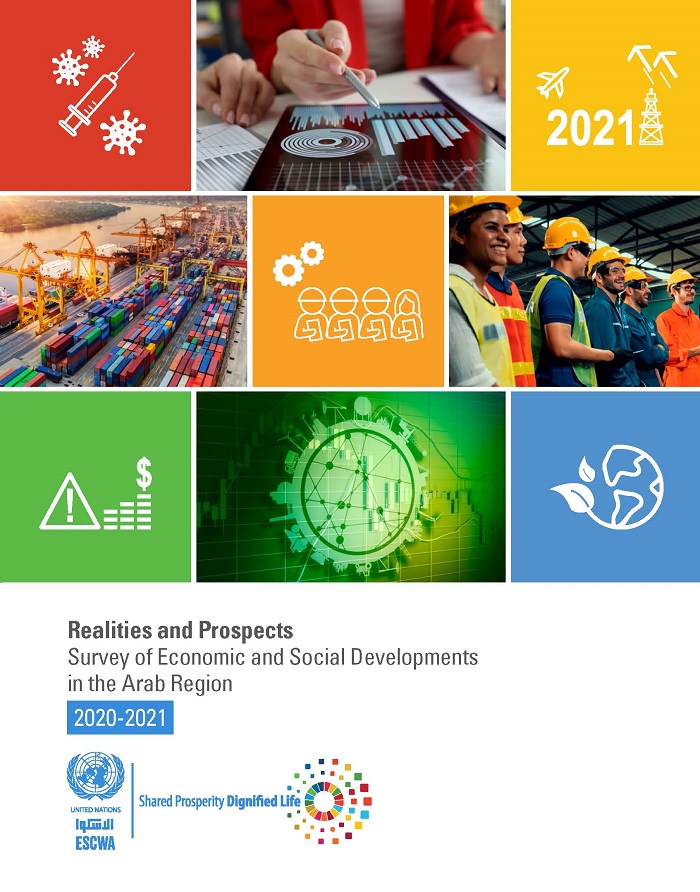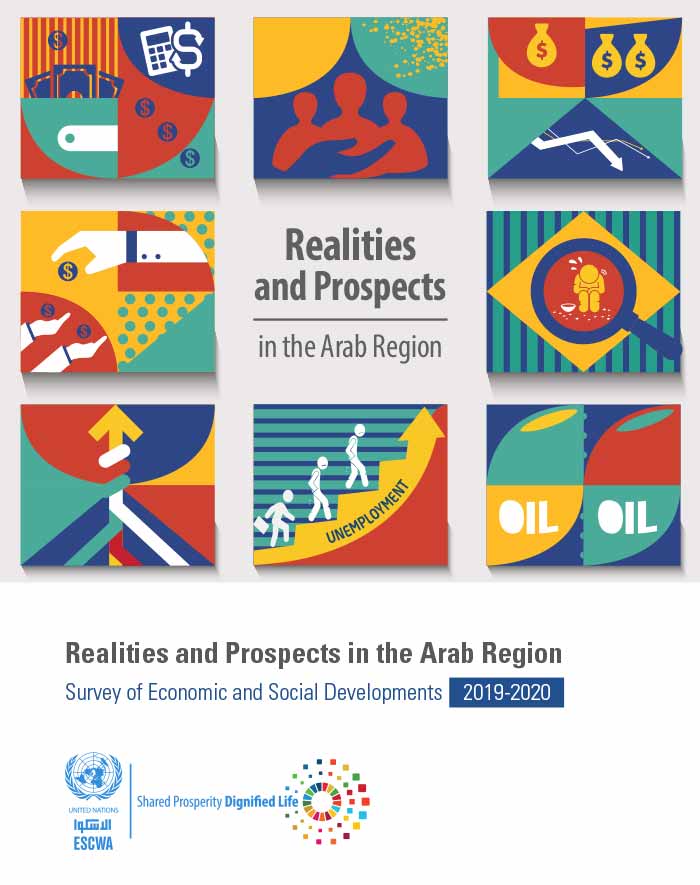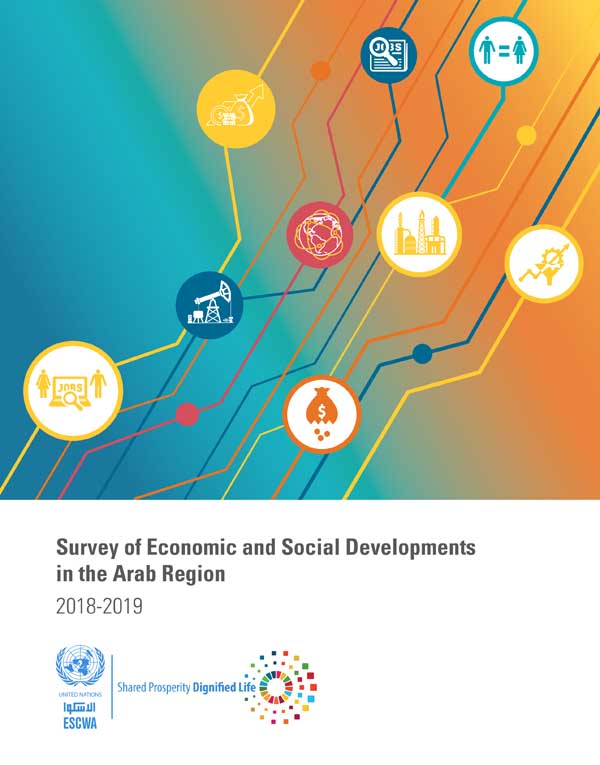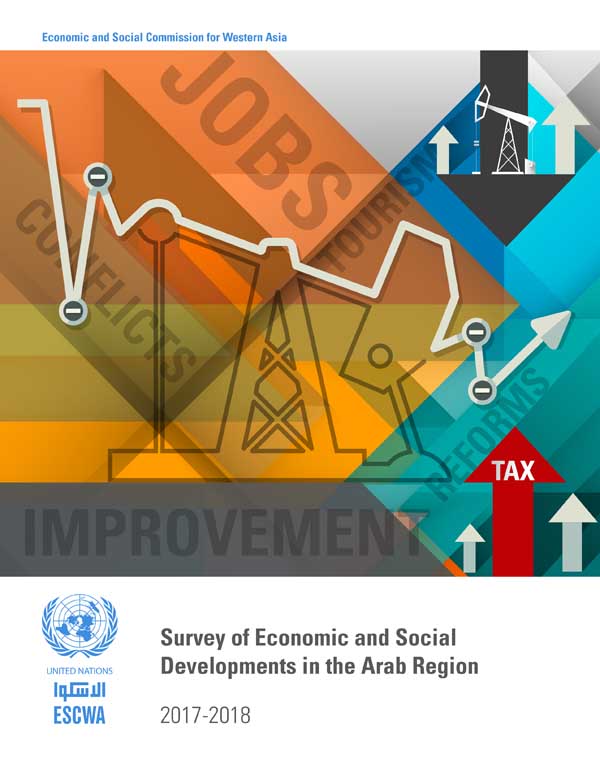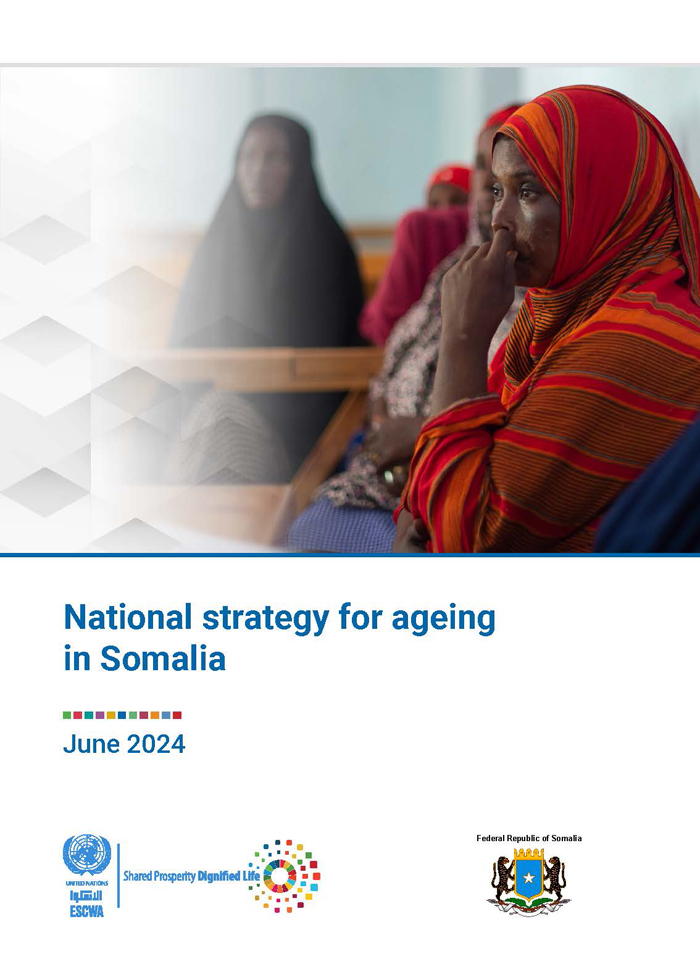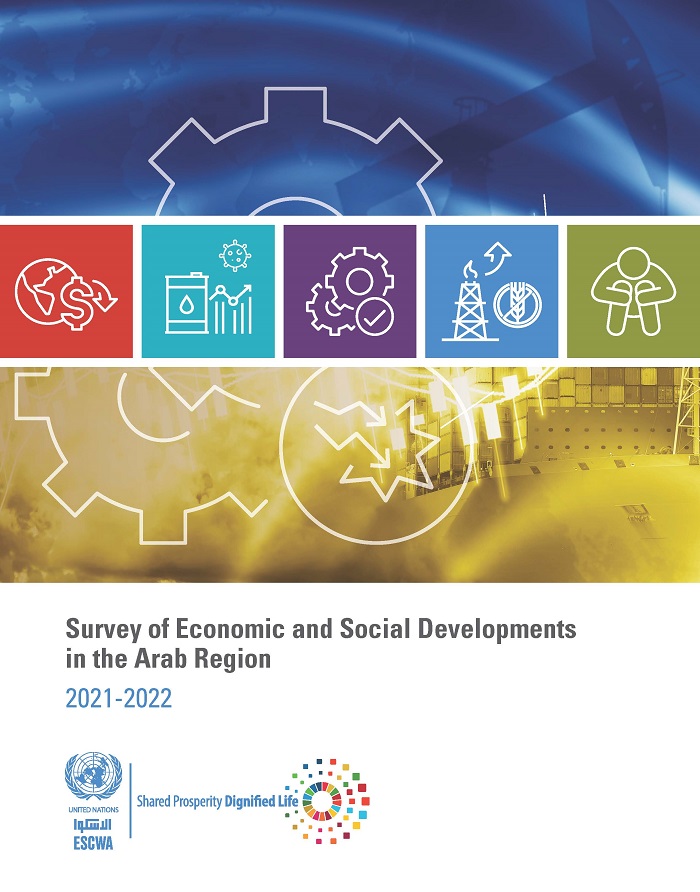
ESCWA Publication: E/ESCWA/CL3.SEP/2022/1
Country: Arab region, Global
Publication Type: Flagship publications
Publication Subject: Survey of Economic and Social Developments in the Arab Region
Cluster: Shared Economic Prosperity
Focus Area: 2030 Agenda, Financing for development, Inclusive development, Macroeconomics
Initiatives: Development challenges, Artificial Intelligence Budgeting, Arab Financing for Development Gateway, Arab Financing for Development Scorecard
SDGs: Goal 8: Decent Work and Economic Growth
Keywords: Conflict, Ukraine, Development, Arab countries, Social development, Economic development, Social development, Armed conflicts, Natural gas, Finance, Phosphates, Labour market, Macroeconomics, Poverty
Survey of Economic and Social Developments in the Arab Region 2021-2022
February 2023
As countries worldwide are still recovering from the repercussions of the COVID-19 pandemic, the war in Ukraine is expected to result in severe implications for the global economy. The ongoing conflict is driving up energy and commodity prices, and threatening food security in many parts of the world. The magnitude of the impact on individual countries depends on the composition of their economies, and their trade and financial links with the two countries in conflict. The gross domestic product of the Arab region is expected to grow by 5.18 per cent in 2022 if the conflict ends by June 2022 (0.02 percentage point lower than the pre-crisis projections), and by 4.78 per cent if the conflict endures longer (0.42 percentage point lower than the pre-crisis projections – an estimated loss of around $11 billion).
As heavy oil exporters, the Gulf Cooperation Council economies will benefit from the recovery in oil markets that started in 2021, and will grow at their fastest pace since 2014. These countries will also profit from oil price hikes caused by the war in Ukraine. All other Arab countries are expected to grow at a slower pace than pre-crisis projections. In addition to higher energy prices, these countries also face increasing food security concerns as a result of the economic sanctions on the Russian Federation, and disruptions to supply chains caused by military activities. Some will also face a decline in official development assistance.
Related content
2030 Agenda
, Financing for development
, Inclusive development
, Macroeconomics
,
As countries worldwide are still recovering from the repercussions of the COVID-19 pandemic, the war in Ukraine is expected to result in severe implications for the global economy. The ongoing conflict is driving up energy and commodity prices, and threatening food security in many parts of the world. The magnitude of the impact on individual countries depends on the composition of their economies, and their trade and financial links with the two countries in conflict. The gross domestic product of the Arab region is expected to grow by 5.18 per cent in 2022 if the conflict ends by June 2022 (0.02 percentage point lower than the pre-crisis projections), and by 4.78 per cent if the conflict endures longer (0.42 percentage point lower than the pre-crisis projections – an estimated loss of around $11 billion).
As heavy oil exporters, the Gulf Cooperation Council economies will benefit from the recovery in oil markets that started in 2021, and will grow at their fastest pace since 2014. These countries will also profit from oil price hikes caused by the war in Ukraine. All other Arab countries are expected to grow at a slower pace than pre-crisis projections. In addition to higher energy prices, these countries also face increasing food security concerns as a result of the economic sanctions on the Russian Federation, and disruptions to supply chains caused by military activities. Some will also face a decline in official development assistance.
